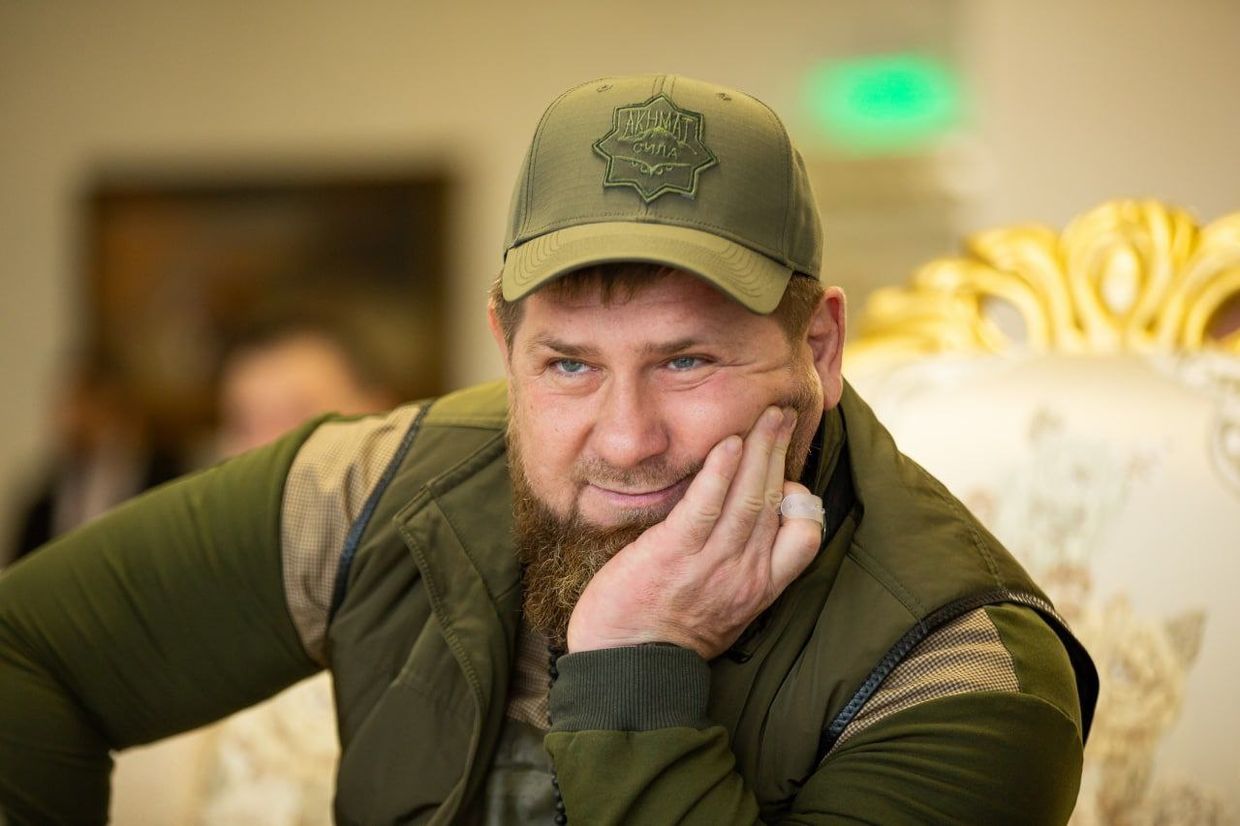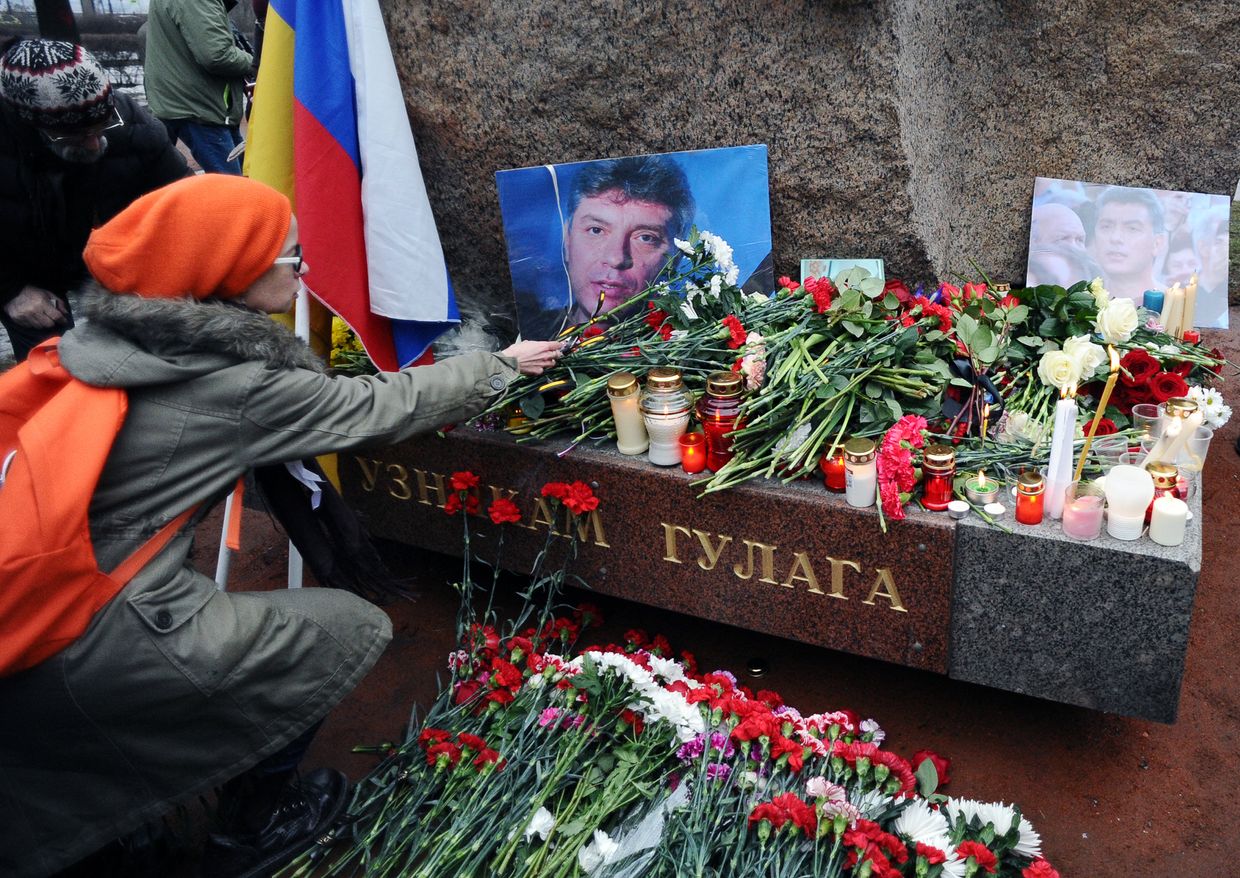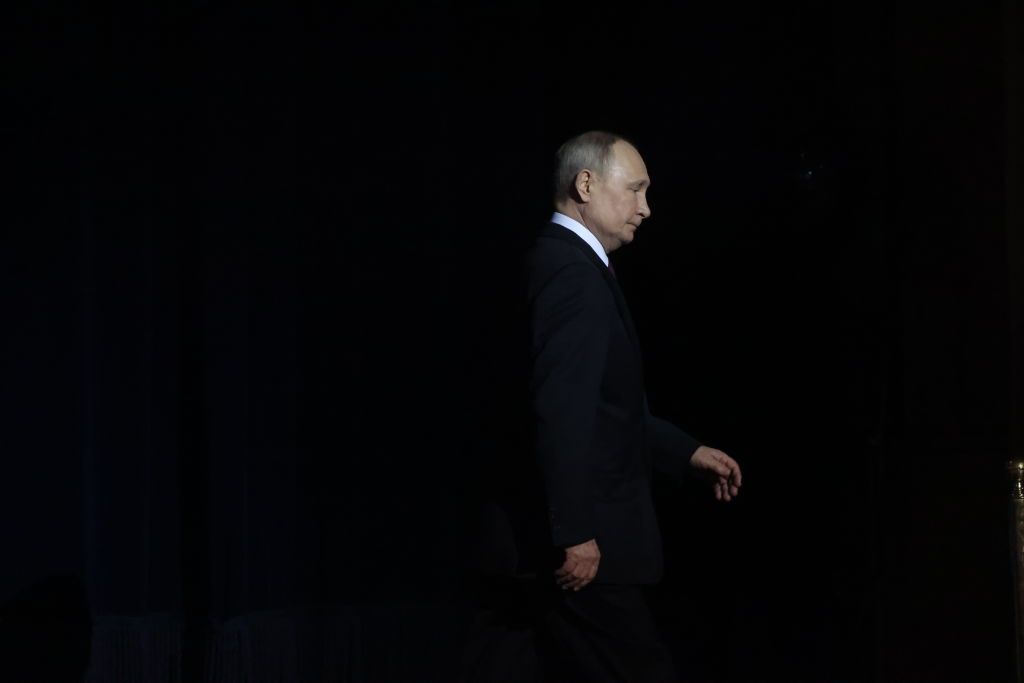How Kadyrov became so powerful, and why Chechnya remains vital for survival of Putin's regime
30 years since start of First Chechen War, Kadyrov's Chechnya remains one of the most brutal places on Earth.

Chechen leader Ramzan Kadyrov attends a meeting of Russia's President Vladimir Putin and Uzbek President Shavkat Mirziyoyev (both not pictured) at Kuksaroy residence in Tashkent, Uzbekistan on May 27, 2024. (Sergei Bobylyov / POOL / AFP via Getty Images)
In December 1994, Russian troops launched a brutal and eventually unsuccessful military campaign against Chechen rebels, effectively beginning the First Chechen War.
Thirty years later and two wars since, Chechnya, under strongman Ramzan Kadyrov, has become a key pillar of Russian President Vladimir Putin's oppressive regime.
After losing the first and winning the second Chechen War, Russia has consolidated its hold over the region, home to 1.5 million people, with the help of Kadyrov's father, Akhmat, and loyalist forces under his command.
The now pro-Kremlin Chechen Republic has become a state within a state, exporting brutality and silencing critics of both Kadyrov's and Putin's regimes.
The Kadyrov family has been able to successfully muster a private army of what local authorities claim to be 70,000 Chechen fighters loyal to the warlord. Chechen militants and police officers have been abducting, torturing, and murdering activists, members of the LGBTQ+ community, and those suspected of disloyalty to the regime.
In exchange for maintaining peace in Chechnya, Kadyrov has been given free rein far beyond the borders of his tiny republic, reportedly carrying out extrajudicial killings in Grozny, Moscow, and Berlin.
"The trauma of (the Chechen War) in the early 2000s still looms over the Kremlin like a specter," Vadim Dubnov, a Caucasus expert at the Carnegie Endowment for International Peace, told the Kyiv Independent. "The last thing Moscow needs now is instability in the North Caucasus, particularly in Chechnya."
Harold Chambers, a North Caucasus expert at the Jamestown Foundation, agreed, saying that "Putin needs Kadyrov to maintain the status quo in Chechnya."
"Reintegrating Chechnya was and is the cornerstone of Putin's legitimacy," he told the Kyiv Independent.
Putin's decision to launch a full-scale invasion of Ukraine further tied the survival of Kadyrov's regime to that of Putin's and vice versa. Kadyrov and his loyal troops now play a central role in keeping Putin's regime afloat.
"The Kadyrov family's dominance of (Chechnya's) ruling structures is only growing. Essentially, Kadyrov has made his family Putin's only option to rule Chechnya within the current Russian political system," Chambers said.
Putin's 'foot soldier'
Kadyrov and his father Akhmat, then Chechnya's grand mufti, fought against Russia during the First Chechen War from 1994 to 1996.
They switched their allegiance to Russia during the Second Chechen War, which lasted from 1999 until 2000, with some skirmishes taking place until 2009.
Akhmat Kadyrov became the Russian-installed head of Chechnya in 2000 and was killed in a terrorist attack in 2004. His son, Ramzan, consolidated power by 2007.
Kadyrov repeatedly proclaimed his loyalty to the Russian president and called himself "Putin's foot soldier." Grozny's central street and Chechnya's police academy have been named after Putin.


Despite these statements, Kadyrov has turned Chechnya into a semi-independent fiefdom, with Chechen law enforcers fully subordinated to Kadyrov and not to Moscow.
Kadyrov claimed in October that he had 70,000 troops at his disposal. Some of Kadyrov's troops are formally subordinated to the Interior Ministry's National Guard (Rosgvardiya), and other units are under the Defense Ministry's jurisdiction.
In 2015, however, Kadyrov permitted Chechen law enforcement agencies to fire at federal troops if their actions were not authorized by the Chechen government.
"Having forced the (Russian) forces out of Chechnya, (Kadyrov) became, in fact, the head of an independent regime, connected with Putin through a personal union," Nikolai Petrov, a Russia expert at Chatham House, told the Kyiv Independent.
Chambers agreed, saying that "Kadyrov has grown so powerful in part because of his unique status within Russia's political system."
"He has leveraged this position to gain a degree of autonomy otherwise unseen in Russia," he added. "The other main explanation for how he became so powerful is his unique relationship with Putin. This relationship extends beyond patronal to something more akin to familial."
Chambers added that "there is a level of trust between (Kadyrov and Putin) that has allowed Kadyrov to overcome all of his colossal failures and violations."
Dubnov said that "within Chechnya, there is only one master."
"there is a level of trust between (Kadyrov and Putin) that has allowed Kadyrov to overcome all of his colossal failures and violations."
"(If anyone visits Chechnya), they will deal with Kadyrov, not Putin, and Kadyrov will decide everything there," he said. "Nothing will happen there if Kadyrov doesn't want it. In this sense, he is independent — but only as long as he maintains stability in Chechnya."
Ryhor Nizhnikau, a Russia expert at the Finnish Institute of International Affairs, told the Kyiv Independent that Kadyrov is among the top representatives of the Russian political elite and can be compared to a member of the Soviet politburo, the de facto collective presidency of the USSR.
The Chechen government has also received lavish subsidies from the Russian authorities in what analysts see as an effort to buy Kadyrov's loyalty. This has allowed the Chechen government to launch large-scale construction projects in the republic.
"Chechnya remained part of Russia because Kadyrov served Putin, for which Putin paid him," Russian political analyst Dmitry Oreshkin told the Kyiv Independent.
Kadyrov's clout outside Chechnya
With no serious challenge to his rule, Kadyrov has also expanded his influence beyond Chechnya's borders. People in several Russian regions who criticized Kadyrov have been forced to publicly apologize to him or face abduction or murder.
His business empire also extends beyond Chechnya.
In recent months, he has been involved in a dramatic conflict with Dagestani billionaire Suleiman Kerimov over the control of Russia's largest online retailer, Wildberries.
Kadyrov's men broke into Wildberries' office not far from the Kremlin in Moscow in September and started a shootout that resulted in two people being killed and around 10 being injured.
He has also tried to extend his influence abroad, presenting himself as a protector of Muslims worldwide.
Kadyrov has lashed out at journalists of the French satirical newspaper Charlie Hebdo who were killed in 2015 by terrorists after ridiculing the prophet Muhammad. In 2017, Kadyrov also organized rallies in support of Myanmar's Muslim Rohingya people, who were persecuted by the country's government.
A killing spree
Journalists and human rights groups have published a lot of evidence implicating Kadyrov's regime in murders, torture, kidnappings, and other human rights violations. About a dozen of Kadyrov's opponents have been killed.
Sulim Yamadayev, a Russian officer whose unit clashed with Kadyrov's forces, was assassinated in the United Arab Emirates in 2009. A local court has convicted two Chechens for the murder, and the United Arab Emirates police believe lawmaker Adam Delimkhanov, Kadyrov's closest associate, to be the organizer of the crime.
Another assassination of a Kadyrov critic, Chechen militant Umar Israilov, took place in Austria in 2009. Several Chechens have been found guilty by an Austrian court for the murder, and Austrian police believe it was ordered by Kadyrov.

The most high-profile murder in which Kadyrov could be implicated occurred in 2015, when Russian liberal politician Boris Nemtsov, a major critic of both Kadyrov and Putin, was shot dead near the Kremlin in Moscow.
A Russian court has convicted Zaur Dadayev, an ex-top commander of Kadyrov's Sever (North) police battalion, and several other Chechens for Nemstov's murder.
Kadyrov's regime has also cracked down on Chechnya's LGBTQ+ community. In 2017, dozens of men were arrested and tortured in Chechnya on suspicion of being homosexual, and at least three were killed, according to the independent Russian publication Novaya Gazeta and Human Rights Watch.
Kadyrov's role in Ukraine, Syria
Kadyrov has actively supported Russia's aggression against Ukraine, becoming one of the loudest pro-war figures following the launch of the all-out invasion in 2022.
Kadyrov's fighters, most of whom are formally part of Russia's National Guard, have participated in Russia's full-scale invasion of Ukraine since February 2022. They have been involved in war crimes on Ukrainian territory, according to the Slidstvo.info investigative journalism project.
Kadyrov's fighters have published a number of staged combat videos from Ukraine on TikTok and other social platforms, gaining the nickname "TikTok forces."
According to the Conflict Intelligence Team, an open-source intelligence outfit, Kadyrov's fighters have mostly engaged in staged operations, and there is little evidence of their effectiveness in combat. This triggered speculation that Kadyrov was reluctant to send his troops to war, since he would need a significant force to preserve his power in Chechnya.
He has routinely issued flamboyant threats against Ukraine and its allies during the full-scale invasion.
Kadyrov threatened to attack Poland in May 2022 unless it stopped arms supplies to Ukraine.
In July 2022, he boasted that his fighters were ready to "go forward and easily take over Kyiv and NATO countries."

After Ukrainian forces liberated the town of Lyman in Donetsk Oblast in September 2022, Kadyrov called for using tactical nuclear weapons against Ukraine to improve the military situation.
In early December, Kadyrov threatened to use Ukrainian prisoners of war as a human shield against Kyiv's drone attacks on the region. He publicly toured his region in a seized Ukrainian Bradley armored fighting vehicle, showed off Ukrainian POWs, and suggested that one of them commit suicide.
Yet, despite his bravado and constant calls to destroy Ukraine, Kadyrov refused to implement Putin's mobilization of conscripts in Chechnya when the move was announced in September 2022.
Kadyrov's troops had also fought in Syria on the side of Russian-backed dictator Bashar al-Assad, whose regime collapsed on Dec. 8.
"Any parallel army with a separate commander is also a potential threat to Putin, more so when he appears weak, as he currently does, with his army so overstretched in Ukraine that he could not support his ally Assad and now faces the potential loss of his military bases in Syria," Samantha de Bendern, a Russia expert at Chatham House, told the Kyiv Independent.
"Putin will need Kadyrov more than ever for his shadow diplomacy in the Middle East, although the Chechen leader could be a liability in Syria as his forces fought on the side of the deposed regime."
She added that "Kadyrov's foreign policy advisor, Ziyad Sabsabi, spent many years studying in Damascus, and he could be a useful conduit for Putin's discussions with the new government if he wants to keep a foothold in the country and keep some sort of presence on his bases."
"The swift victory of (Islamist group Tahrir al-Sham) in Syria has the potential to inspire a myriad of anti-regime movements all over Russia, especially in the republics where there is a strong Muslim presence," de Bendern said.
"In this context, Kadyrov's iron grip on Chechnya will be all the more important to Putin."
Challenges to Kadyrov's power
So far, there is little indication of any serious threat to Kadyrov's authority inside Chechnya.
One of the Islamist insurgent groups in the North Caucasus, the Caucasus Emirate, was dissolved in 2016. Another one, the Caucasus Province of the Islamic State, has kept a low profile since its last leader was killed in 2021.
"Insurgents are not currently a real threat to Kadyrov's power," Chambers said. "There have been around ten shootouts or attacks in Chechnya since 2020, with most of them occurring in 2020 or 2021. Most of the attacks have been isolated, with the militants killed or captured."
Petrov agreed, saying that "the main threat to Kadyrov's power is not so much the Islamists, but the numerous representatives of the clans he suppressed within Chechnya."
Dubnov said that "in Chechnya, Kadyrov's main capital is his monopoly on communication with Moscow."

"If he loses this, he will become less attractive to the local elites and less formidable to the population," he said. "Kadyrov has many enemies, even within Chechnya itself, because it's a society that does not forget blood feuds. For now, the situation is frozen, but if it unfreezes, I don't think Kadyrov will survive for very long."
But it also works the other way around. It is not clear what Kadyrov will do if Putin's regime faces a serious crisis.
"As the balance of power shifts, maintaining control over the firebrand Kadyrov will be more important than ever for Putin," de Bendern said.
"Could Kadyrov turn into Putin's Frankenstein, the monster who turns on its creator? While there is no prospect of Kadyrov taking over the Russian presidency, he could become a significant destabilizer in a fragilized Russia should Putin's rule look under threat."















